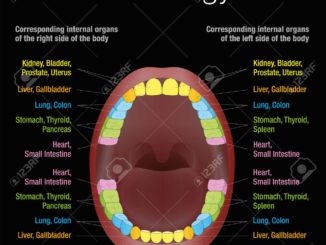
Advances in medical science have given us a specialized form of testing today that is easy to conduct from the comfort at home and powerful enough to foresee the probability of specific diseases developing. This information when reviewed by medical doctors and specialists can save lives.
The type of tests that we are referring to are known as genetic testing, aka genetic screening.
As mentioned above this type of testing is potentially life saving, so read on.
What Exactly is Genetic Testing?
Genetic or DNA testing is a powerful methodology that has been developed to determine if an individual patient has genetic propensities to certain diseases.
Genetic screening may be utilized to determine if there is a potential presence of genetic disease, or forms of genes, related to the increased risk of coming down with certain genetic disorders.
What genetic testing does is to identify changes in genes. Those changes are red flags to researchers and medical professionals that a patient has a statistical probability of coming down with a certain disease.
Armed with that information, medical science may be able to take steps to mitigate or lessens the risks of that disease occurring, and thus potentially save the of of the patient.
The variety of theses genetic tests has expanded throughout the years, making their use more common in the quest off ward off disease.
For example, the potential for developing cardiovascular or heart disease is an example of one such disease that genetic screening test will potentially discover.
Genetic tests can determine if there is a genetic condition that should be addressed by a physician.
In the past, genetic tests typically searched for rare inherited diseases. Today, tests look to multiple genes to determine the risk of developing specific diseases.
Currently there are hundreds of genetic test that may be conducted
Some of them include but are not limited to:
- Newborn screening- used after birth to identify genetic disorders that can be treated early in life
- Diagnostic testing- used to discover specific genetic conditions.
- Carrier testing-used to identify people who carry a gene mutation that causes a genetic disorder.
- Prenatal testing- used to detect changes in genes before birth.
- Before implantation testing- reduces the risk of having a child with a particular genetic disorder.
- Predictive testing- used to detect gene mutations related to diseases that appear later
- Forensic testing- uses DNA to identify people for in legal proceedings.
Several hundred genetic tests are currently in use, and more are being developed.
The evidence is clear that for those who may be interested in learning whether any genetic evidence exists that may help identify a propensity or possibility of coming down with a specific disease, genetic testing or genetic screening is a powerful tool in this quest for knowledge.
The tests are simple,pain free and fast. In fact some can be conducted at home making the entire experience stress free and at the convenience of the patient.
Unless otherwise stated, PONIREVO and/or its licensors DO NOT own any intellectual property rights in the website and material on the website. Majority of the site’s content has been scraped and auto posted by a third party artificial intelligence program —– PONIREVO Creation Team.
Proudly WWW.PONIREVO.COM
by M. Bruno



